School of Foreign Studies Holds Round-Table Forum on Translation Discipline Construction and Personnel Cultivation in the New Era
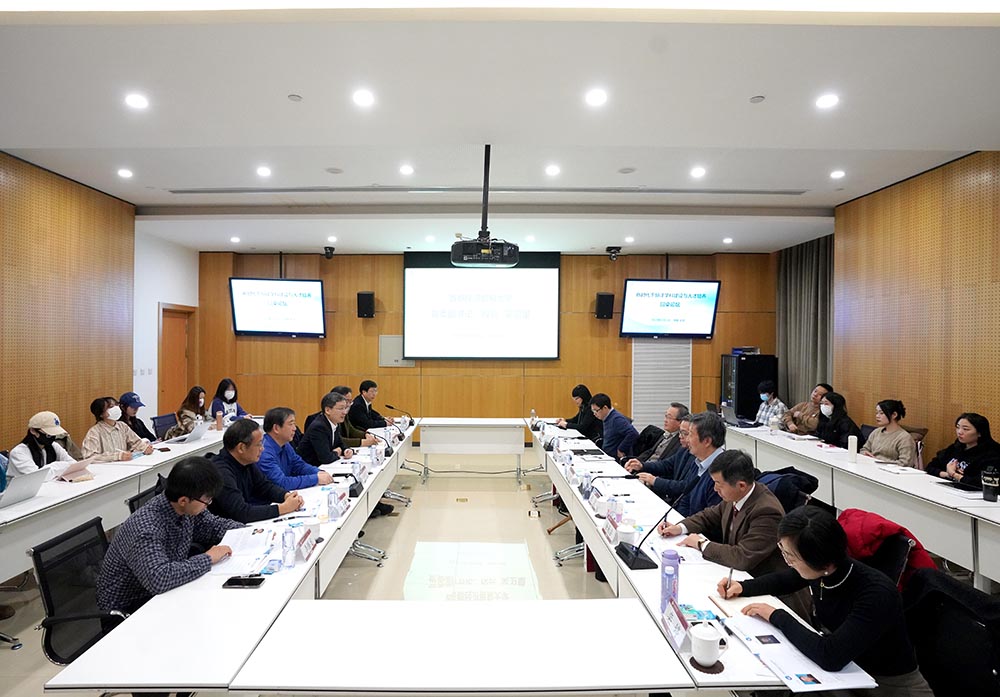
On December 2, the School of Foreign Studies (SFS) held the Round-Table Forum on Translation Discipline Construction and Personnel Cultivation in the New Era in the Video Conference Room of Boyuan Building. Present at this forum were experts from Beijing Foreign Study University (BFSU), Southwest University (SWU), University of International Business and Economics (UIBE), Beijing Language and Culture University (BLCU), Beijing Normal University (BNU), Minzu University of China (MUC) and Hunan Normal University (HUNNU). President Wu Weixing, Vice Secretary of CUEB Party Committee gave a speech in the forum. Liu Chongxiao, Deputy Party Secretary and Dean of SFS, presided over the forum.
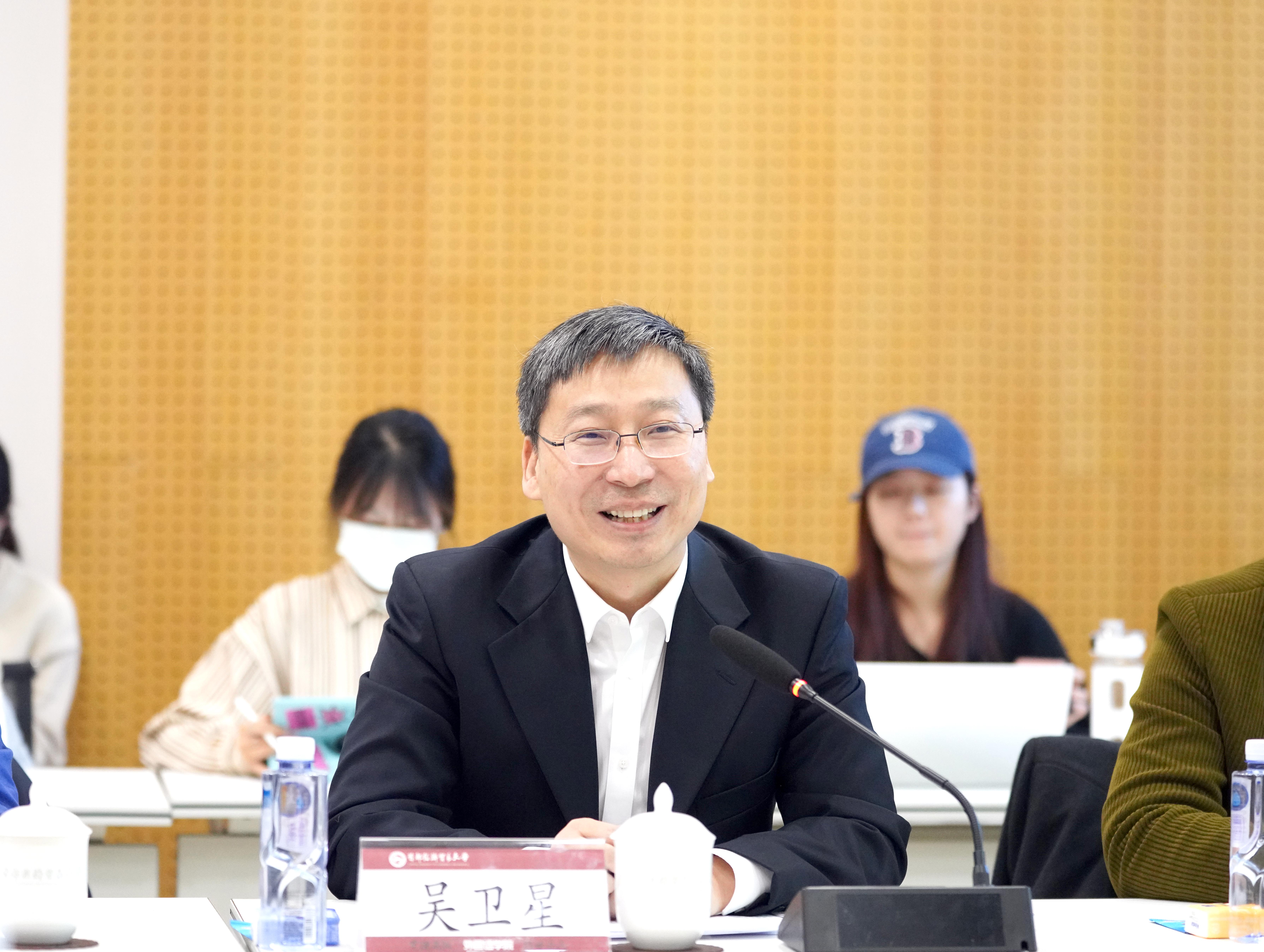
On behalf of CUEB, Wu expressed a warm welcome and great gratitude to the experts. He pointed out that the forum is a response of SFS to strengthen international communication capacity, promote exchanges and mutual understanding of civilizations, and jointly build the Belt and Road initiative. It is also a work deployment for SFS to implement the spirit of the 20th Party Congress and the 5th Party Congress of CUEB, and a plan to optimize the discipline arrangements and deepen the reform of personnel training mode. Wu put forward three requirements for SFS:
• First, focus on strengthening our international communication capacity.
• Second, lay a solid foundation in cultivating high-level personnel in translation and communication in the new era.
• Third, promote collaboration and innovation between translation and international communication.
He hoped that with the instruction of the experts, CUEB could make breakthroughs in translation discipline, cultivate more high-level personnel in translation and international communication, who can serve the major national strategies and the high-quality economic and social development of the capital and contribute to exchanges and mutual understanding of civilizations and the building of a community with a shared future for humanity.
This forum consisted of two parts, namely expert speeches in the morning and expert consultation and argumentation meeting of translation discipline construction in the afternoon.
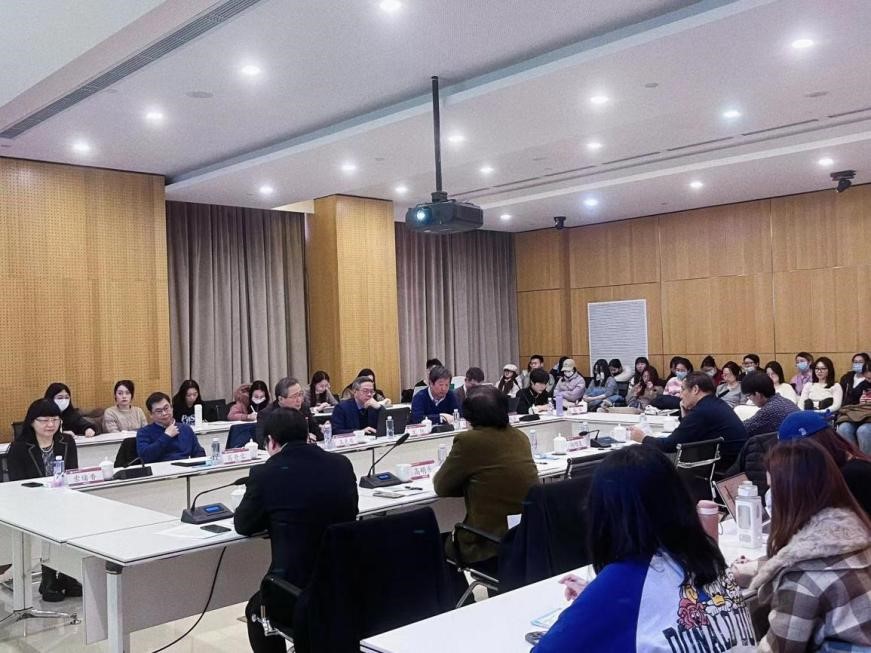
During the experts’ speech, Professor Xiang Mingyou, Dean of the School of International Studies of UIBE, gave a lecture entitled “MTI in the New Era”. He elaborated on how to build a five-language bachelor education system with the integration of knowledge, quality, and ability, as well as the integration of personnel cultivation with multi-disciplinary development.
Professor Wang Kefei, Chair Professor at BFSU and Researcher at National Research Centre for Foreign Language Education, in his speech entitled “Understanding Translation from Scratch”, pointed out that translation is to bridge the communication between China and the rest of the world, and that we should strengthen critical learning and thinking to better cope with the challenges posed by Generative Artificial Intelligence in translation in the new era.
Professor Wen Xu, Dean of the College of International Studies of SWU, lectured on “Social Cognition and Translation”, which focused on three aspects: sociocultural cognition theory, values, and international communication of Chinese culture, and ethnopsychology and international communication of Chinese culture. He also stressed the important role of the values and ethnopsychology of each nation.
Professor Gao Mingle, Director Faculty of Foreign Studies of BLCU, elaborated on “The Transformation of Foreign Language Discipline”. He analyzed the urgency and significance of the transformation in terms of discipline framework, adjustment, and background.
Zhang Zheng, Professor of BNU, delivered a speech entitled “Opportunities and Challenges Facing Translators in ChatGPT Era”. He analyzed the great impact of ChatGPT on translation and proposed the idea of cultivating translation personnel with the concept of “digital symbiosis” as the core.
Professor Yu Chengfa, head of the translation discipline of the Foreign Studies College of HUNNU, explained that in the new era, to get through the “last mile” between translation and communication, it is necessary to form a new model of “four-dimensional connectivity” (which means creating, translating, transmitting, and receiving) systematically to help Chinese culture go global.
Professor Xiao Kairong, Deputy Dean of SWU College of International Studies, made a speech on “Cultural Conceptualization in Cultural Cognition and Translation”. He also shared his understanding of Culturalism and Cultural Linguistics, exploring the cognition and culture of translation transformation from the basic theoretical ideas of Cultural Linguistics.
Ma Shikui, Professor of MUC School of Foreign Studies, shared the development history and construction experience of the translation discipline at MUC. Taking his school as an example, he introduced how to cope with the impact of computer translation technology, how to give full play to professional strengths based on the advantages of the school, and how to strengthen the cultivation of MTI personnel.
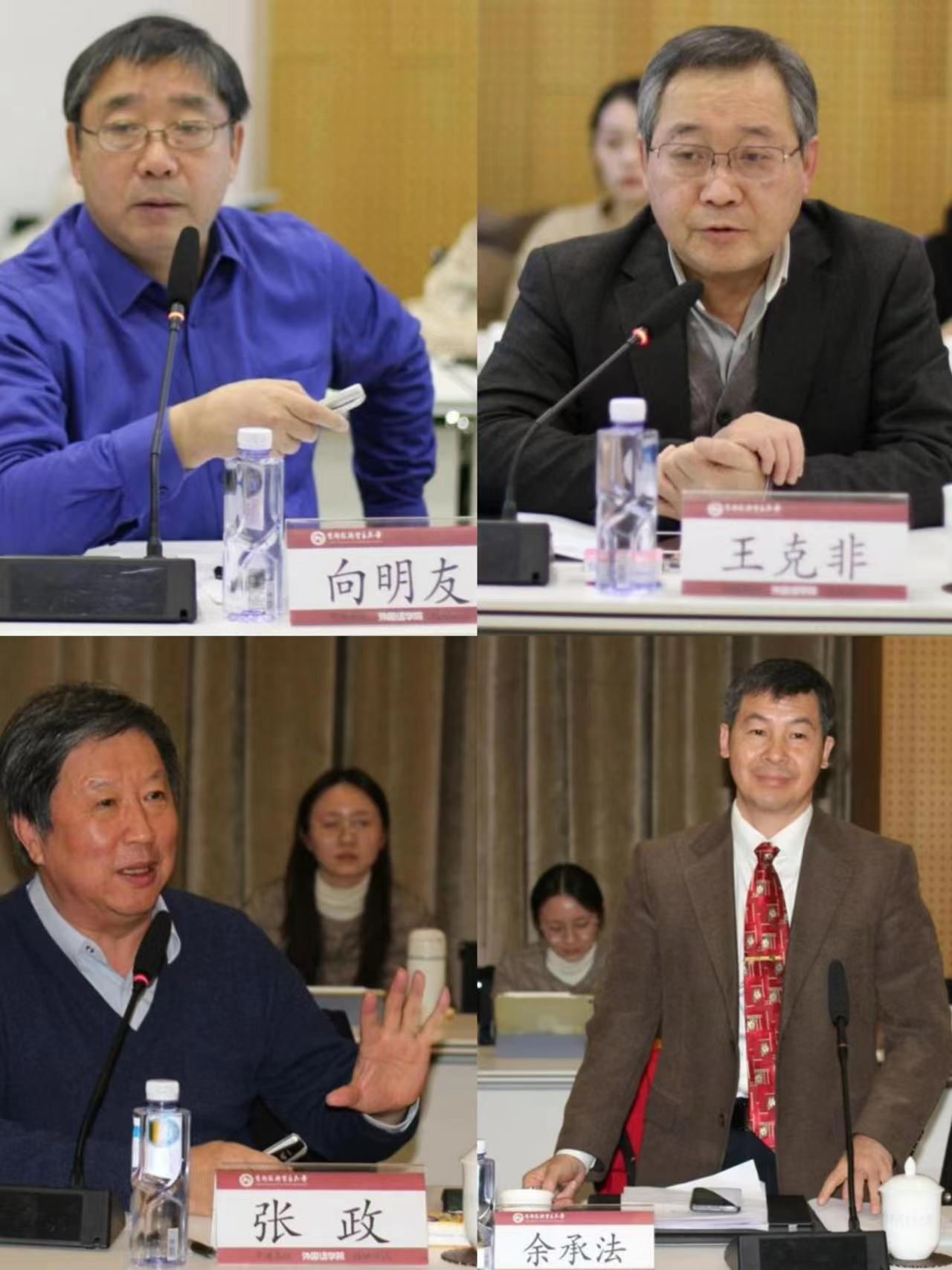
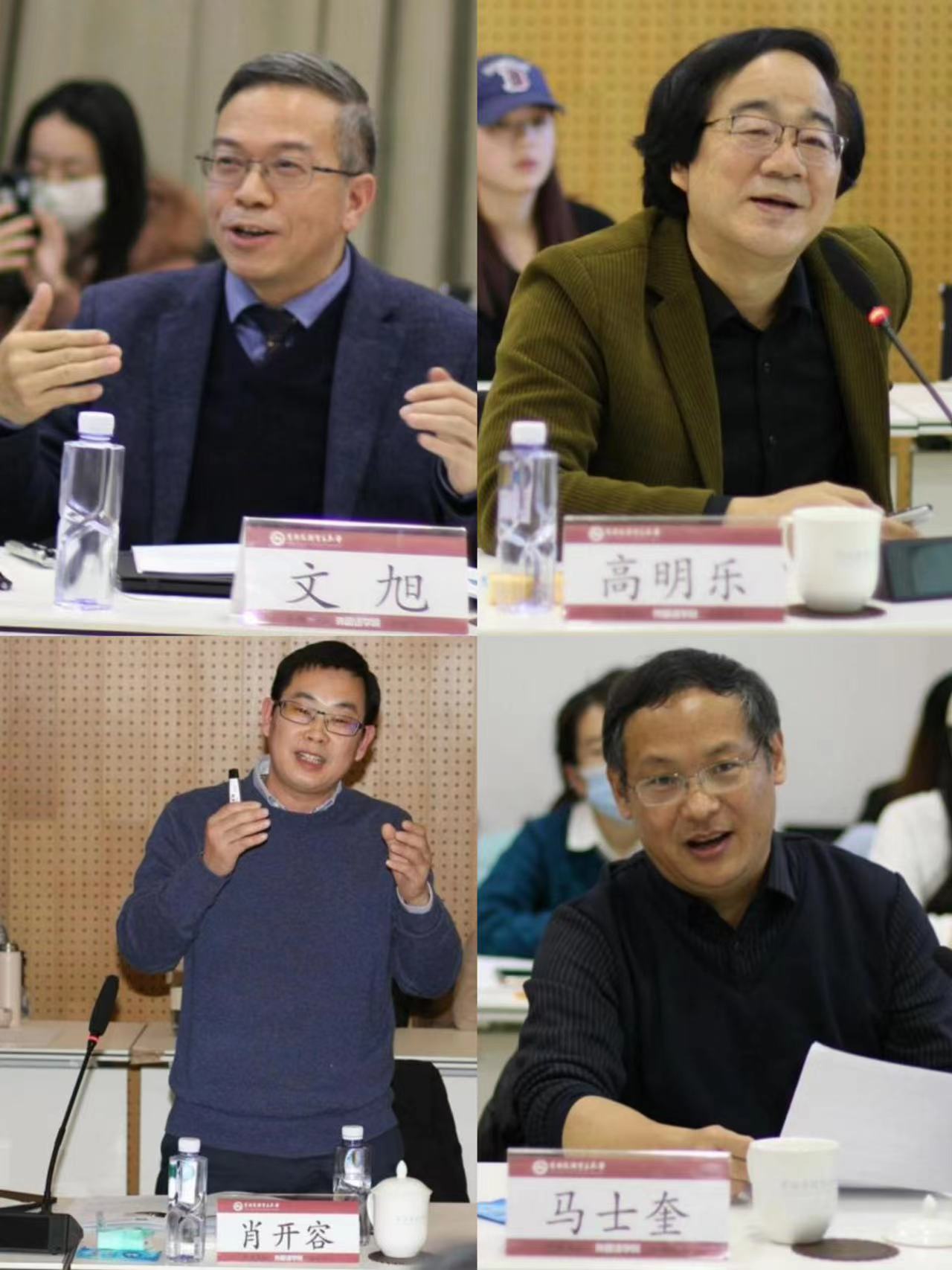
During the expert consultation and argumentation meeting, Liu Chongxiao introduced the faculty building, discipline construction, and achievements of research, teaching, personnel cultivation, and language service practices of SFS. He hoped that the experts would make suggestions for the discipline construction. Following the national strategic demand and the development trend of the translation discipline, the experts discussed the current situation and future development of SFS and put forward some suggestions. They said that we need more excellent high-level translation personnel for the international communication of Chinese culture in the new era, and believed that under the support of CUEB, the construction of translation discipline and personnel cultivation will witness better development.
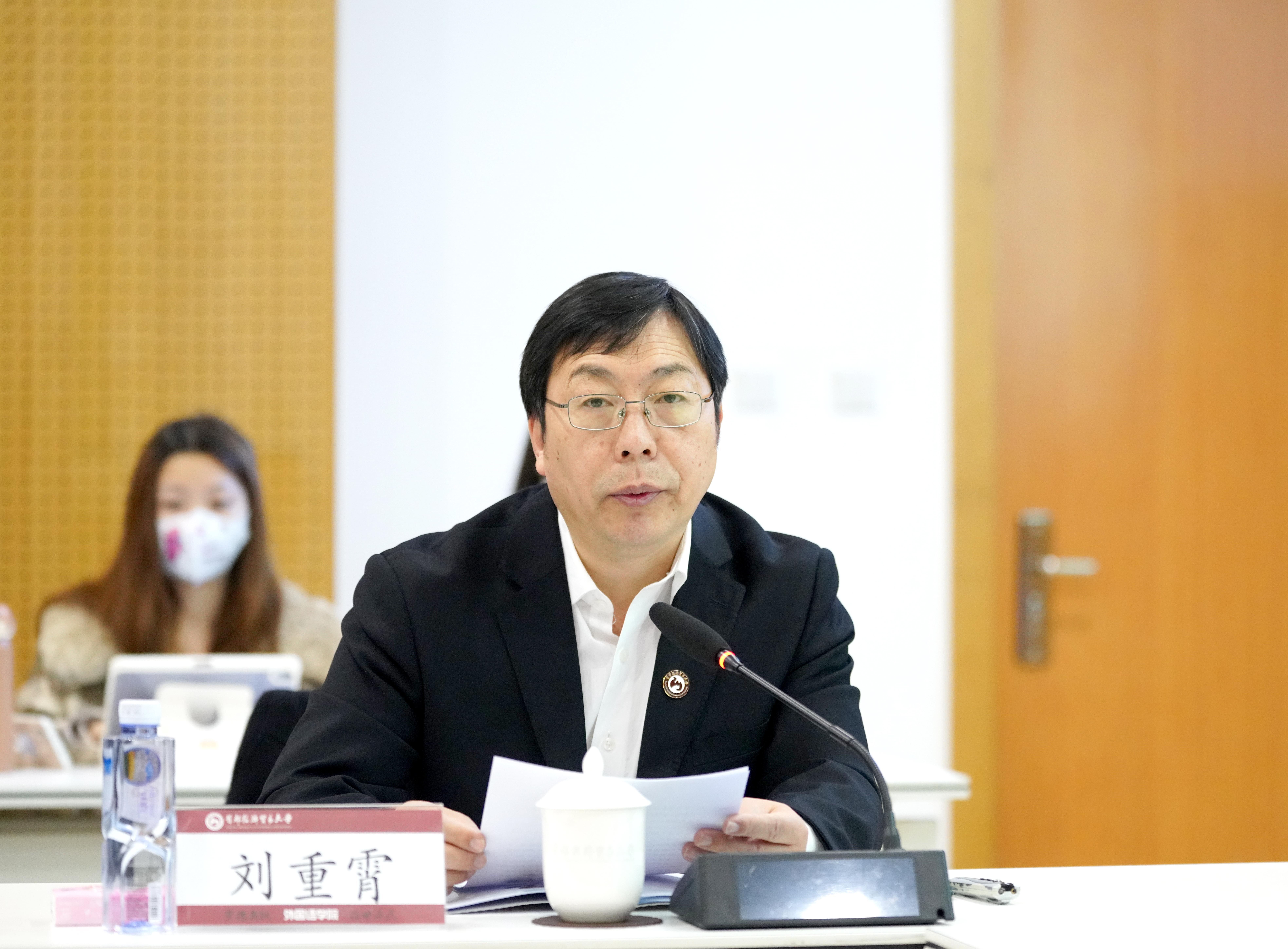
During the forum, the experts discussed the development of the translation discipline in the new era and made some suggestions, indicating the direction for the construction of the translation discipline of CUEB. SFS will accept these suggestions and make every effort to cultivate high-level and application-oriented translation personnel and write a new chapter for the high-quality development of the translation discipline.
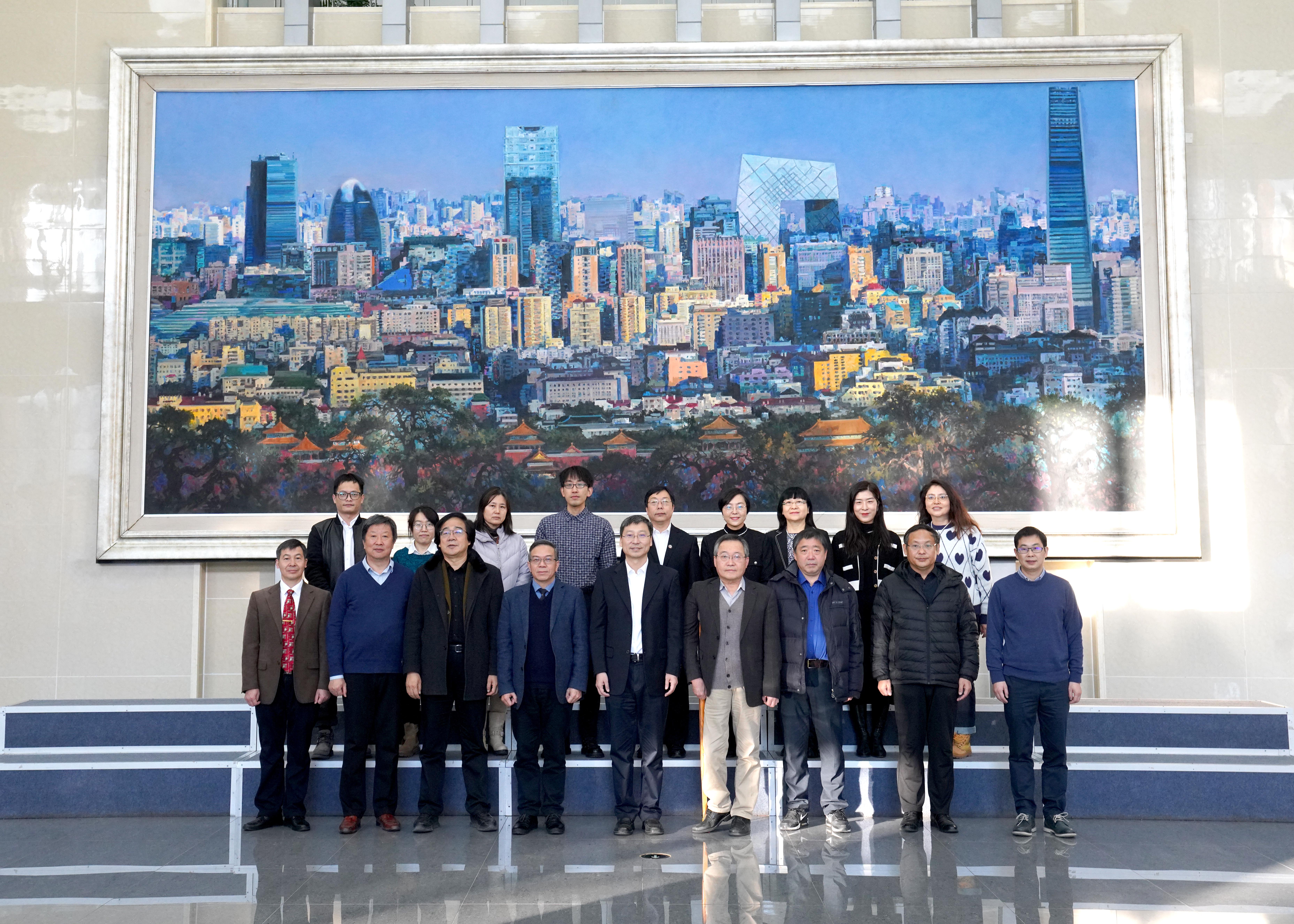
More than 50 teachers and graduates from SFS attended the forum.
